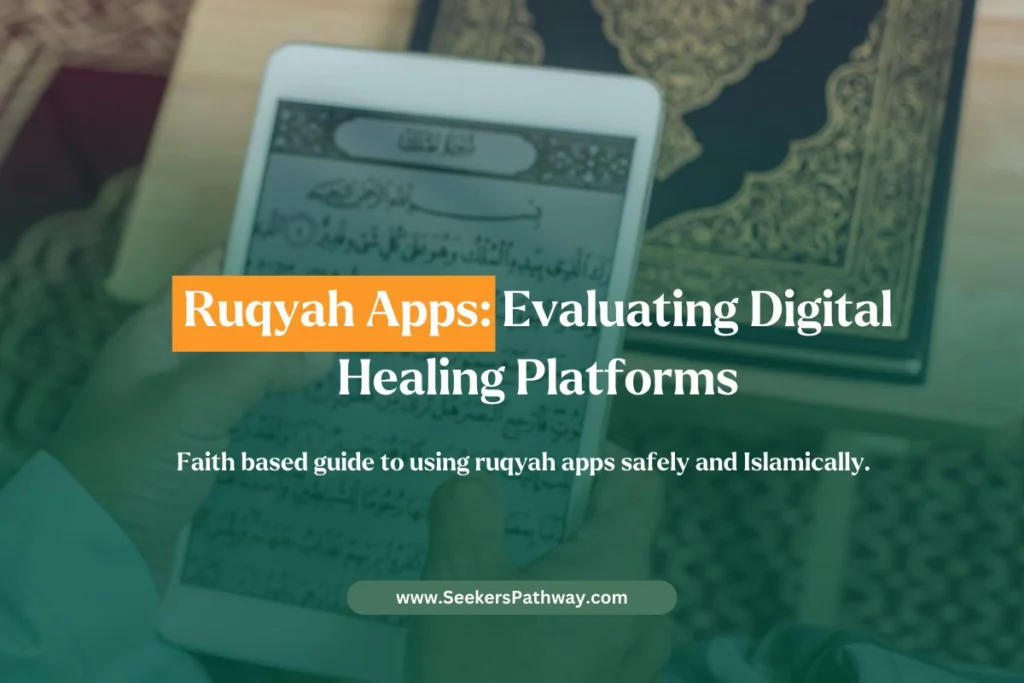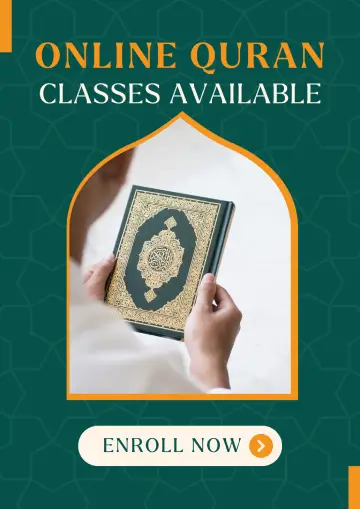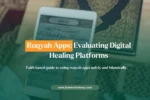As spiritual healing goes virtual, a handful of Ruqyah apps, which provide users with audio recitations, duas and healing guides, have been gaining digital profile. Sold as protection tools against sihr (magic), jinn possession, the evil eye and anxiety, these apps also raise some important questions: Do they work? Are they Islamic? Can an app ever be a substitute for the traditional ruqyah?
What Is Ruqyah in Islam?
Ruqyah is the recitation of the Qur’an seeking refuge in Allah, remembrance and mentioning of Allah, prayers, and supplications that are used as a means of treating sicknesses and other problems. The Prophet Muhammad ﷺ himself and his companions would regularly recite ruqyah for themselves, including the following:
- Surah Al-Fatihah.
- Ayat al-Kursi (2:255).
- Last two Verses of Surah Al-Baqarah.
- Surahs Al-Ikhlas, Al-Falaq, and An-Naas.
Authentic ruqyah must:
- There is no shirk (associate) for the sake of this.
- Be derived from the Quran or genuine Hadith.
- But to be recited with full tawakkul (reliance) on Allah, not as a magical solution.

What Do Ruqyah Apps Offer?
Most ruqyah apps today include:
- Recitations from the Holy Qur’an (pre-recorded).
- Audio dua playlist.
- Healing intentions for black magic, evil eye, nightmares, and depression.
- Reminders and progress tracking.
Some take it a step further, providing “live sessions,” virtual imams or custom ruqyah readings, erasing the line between Islamic guidance and unverified innovation.
Are They Islamically Valid?
On a balance of probability, listening to ruqyah audios with faith has benefits (which are gained especially when talented imams are reciting accompanied by personal duas, academics added. But the best ruqyah is that which is done in person, preferably by oneself or by someone trustworthy, where there is:
- Intention (niyyah).
- Personal touch.
- And rewind your reflection, focusing awhile.
Acceptable Use:
- Listening to real Ruqyah taking that is based on the Qur’an for consolation or security or to help promote your faith.
- Practising with the app to learn how to read and memorize ruqyah verses.
Caution Required:
- Apps that charge money for “exclusive” healing could prey on vulnerable users.
- Any claims of instant cures or powers from beyond are red flags.
- Acts that are based on symbols, emblems, or on any strange language could lead one to shirk or to bid’ah.
What to Look for in a Ruqyah App?
Before using or recommending the app, check:
- Is the source of Qur’an mentioned explicitly?
- Are the reciters listed by name and properly vetted?
- Does it caution against overdependence or superstition?
- Does it protect against the commercialization of spiritual healing?
Apps should be reminders, not replacements, for real spiritual engagement.
Conclusion
Ruqyah apps can be beneficial if used wisely and aligned with Islamic teachings. They’re helpful tools for learning, listening, and healing, but they should not substitute sincere dua, Qur’anic recitation, or reliance on Allah.
“And when I am ill, it is He who cures me.”
Surah Ash-Shu’ara (26:80)
May our search for healing always lead us closer to Allah and not into superstition or dependence on tools devoid of spiritual understanding. Ameen.










